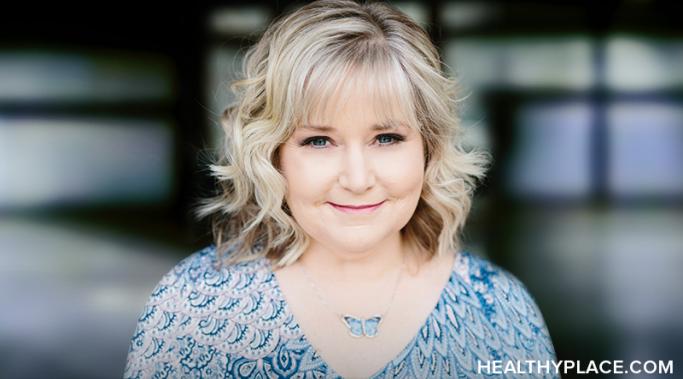Blogs
Bipolar treatment changes are often brutal, as anyone who has gone through them knows. And in my case, there always seems to be some kind of change going on either to deal with a new symptom or mitigate a side effect. And while there are algorithms for treating bipolar disorder, no algorithm takes a patient through a 20-year course of the illness that doesn't respond well to medication. No algorithm outlines the cocktails the likes of which I, and many others, take. This means that doctors are using their clinical judgment and experience rather than empirical evidence to make treatment decisions. In other words, they're guessing. Don't get me wrong, they're guessing intelligently, to the best of their ability, but guessing really is what's happening with many bipolar treatment changes.
Journaling for mental health has helped me in so many ways. Not only does it help me track my moods, but it can keep me accountable when I'm trying to change a habit. By journaling for mental health consistently, I can backtrack to see where my feelings come from. I get frustrated when I go from one emotion to the other without knowing why. By writing down what I’m feeling, I can usually decipher why I’m having that specific emotion. When I’m trying to change a habit, journaling helps me to keep track of my progress. First, I set goals for myself -- just little steps to work towards changing the habit. I can journal each day about what I did to take a step towards the larger goal. This is not only motivating, but it keeps me accountable to myself.
Have you ever had that feeling where you just don’t feel good enough, no matter what you do? It can be very discouraging and hard to come out of. You can easily let the feeling of not being good enough to consume you. Below are three things you need to remember when you don’t feel good enough.
When necessary, you can design a plan for binge eating disorder treatment at home. Treatment programs for eating disorders can get pricey, especially when you aren't receiving any insurance coverage. This was the case for me the last time my eating disorder took over. Because of this, my therapist, psychiatrist, and I figured out how to structure my own binge eating disorder treatment at home to get me well again.
What’s the most recent interaction that easily offended you, caused immediate anger, or raised your hackles?
Anxiety can help you. Really. We see anxiety as a lot of things – a disease, a nuisance, a foe, even a monster. But most people wouldn’t think of it as a messenger, and I’d bet almost no one sees it as a helper but read on to learn how anxiety can help you.
I wrote my first post for "Coping with Depression" one year ago. This year has now come to an end, and I’m writing my last post a "Coping with Depression" co-author. Today, I’m sharing with you a fear I’ve overcome, what I’ve learned this past year, and encouragement for those suffering from depression.
The stigma against schizophrenia caused me to be dishonest. When I transferred from the Rhode Island School of Design (RISD) to The School of the Art Institute of Chicago (SAIC), everyone wanted to know why. This puzzled me because it was obvious that SAIC is a top art school by global standards. Still, I wouldn’t have transferred if I hadn’t had a schizoaffective psychotic episode, but I couldn’t tell people that because of the stigma against schizophrenia.
Hi, my name is Traci Powell and I’m thrilled to be joining HealthyPlace as a writer for Trauma! A PTSD Blog. Posttraumatic stress disorder (PTSD) has taken me to the darkest pits of despair but has also helped me find a strength I didn’t know I had. I’ve discovered that through learning coping skills and understanding how trauma affects your brain and body, PTSD can be managed and even overcome.
Experiencing intrusive thoughts is one of the most terrifying aspects of obsessive-compulsive disorder (OCD) and anxiety disorder such as generalized anxiety disorders (GAD). If you are bombarded repeatedly by distressing ideas and images, you might want to hide it because you are afraid that there's something wrong with you. However, that belief comes from fear and anxiety. Intrusive thoughts aren't an indication that you are a terrible person. This look at intrusive thoughts in OCD and anxiety can help you understand what's happening and learn how to deal with these alarming, unwanted thoughts.









